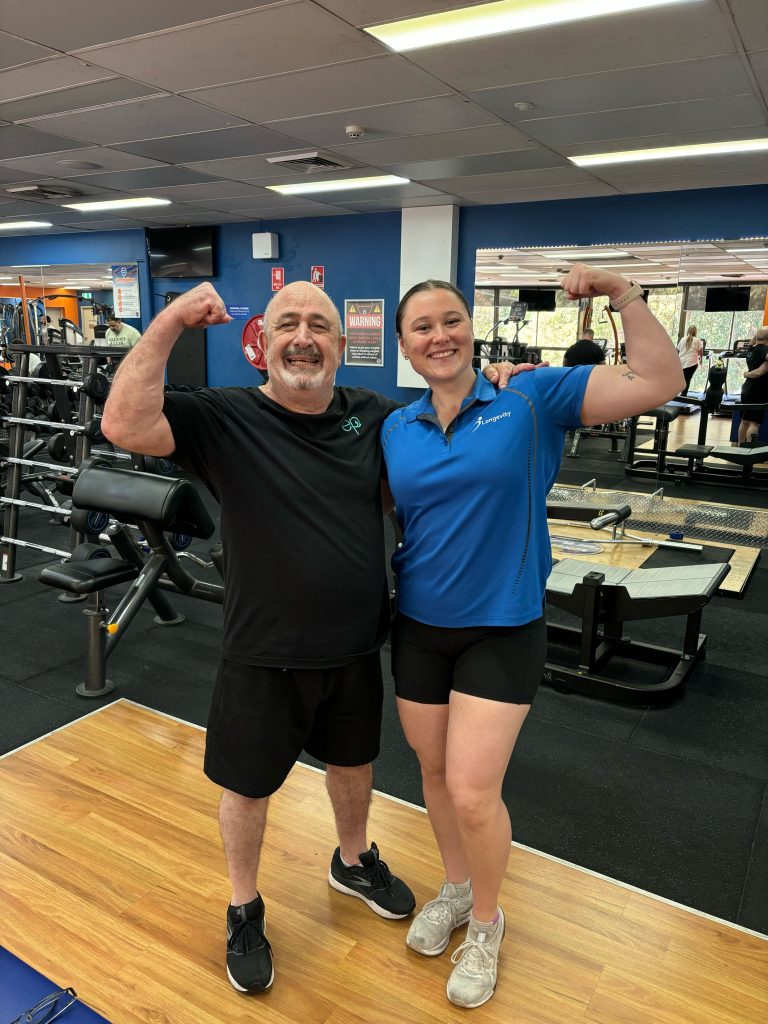How Exercise Can Help you Live Longer!
Imagine feeling strong, independent, and capable at every stage of your life. This is a hope shared by many, especially those who face the daily challenges of chronic pain, injury, and/or illness. The fear of losing quality of life—the ability to stay active, mobile, and enjoy the things you love—can feel all too real. But what if there were a way to preserve your independence and health, even when faced with these challenges?

At Longevity, we understand that every individual is the hero of their own health journey, and we see our role as a supportive guide. If you’re struggling with chronic pain or an ongoing health condition, you know the value of having a team that truly understands your needs and is committed to helping you overcome them. We’re dedicated to empowering you to live a long, active, and fulfilling life by prioritising your health and well-being.
Exercise offers benefits that go beyond appearance or immediate fitness; it actually keeps your body young at a cellular level. Physical activity helps reduce stress in the body, repairs damaged cells, and keeps your systems running efficiently. Recent research even shows that exercise helps protect telomeres, the ends of your chromosomes, which play a key role in aging. Maintaining these telomeres through regular exercise can help slow the biological aging process, allowing you to stay healthier and more active for longer.
Our approach at Longevity is tailored for those who want more than short-term results. We’re here to support you in building lasting health so you can thrive well into the future. We do this by offering a lifetime booking system that reserves a set time each week for your sessions, helping you make your health a consistent priority. In each 60-minute, one-on-one session, you work directly with a qualified Exercise Physiologist who’s deeply invested in your journey and goals. Your sessions are designed with precision, based on the latest science, to address your unique needs and guide you towards a healthier life. And because we believe in a collaborative approach, your EP coordinates with other allied health professionals to consider every aspect of your health.

We understand that taking the first step can be intimidating, especially if you’re unsure of exercise’s impact on chronic conditions. Many of our clients felt the same way until they experienced the benefits for themselves. Today, they’re living proof that an active life isn’t just possible; it’s transformative. People who once struggled with daily pain are now moving with ease, and those who worried about the limitations of aging are finding freedom in health.
If you’re ready to take that first step towards a longer, healthier life, we’re here to help. Book a free initial consult today and discover how exercise can unlock your best years yet.
Related Articles:
Exercise and Telomere Length
This study suggests that regular exercise can protect against the shortening of telomeres, which is associated with aging, potentially buffering against the effects of stress on cellular aging.
Puterman, E., Lin, J., Blackburn, E., O’Donovan, A., & Epel, E. (2010). The power of exercise: Buffering the effect of chronic stress on telomere length. *PLoS One*, 5(5), e10837.*
Physical Activity and Longevity
Findings from this large cohort study indicate that engaging in regular moderate to vigorous physical activity can significantly reduce mortality rates, supporting the notion that exercise promotes a longer life.
“Being active—having a physical activity level at or above the WHO-recommended minimum of 150 minutes of brisk walking per week—was associated with an overall gain of life expectancy of 3.4–4.5 years”
Moore, S. C., Patel, A. V., Matthews, C. E., et al. (2012). Leisure time physical activity of moderate to vigorous intensity and mortality: A large pooled cohort analysis. *PLoS Medicine*, 9(11), e1001335.*
Resistance Training and Physical Function in Aging
Resistance training is shown to improve muscular strength and functional ability in older adults, which can help maintain independence and reduce the risk of age-related frailty.
Peterson, M. D., Rhea, M. R., Sen, A., & Gordon, P. M. (2010). Resistance exercise for muscular strength in older adults: A meta-analysis. *Ageing Research Reviews*, 9(3), 226-237.
Written Callan Pratt
